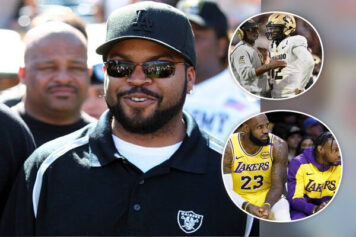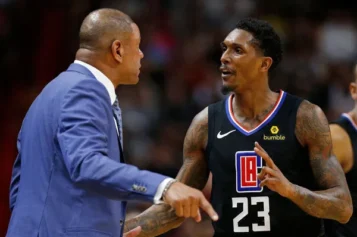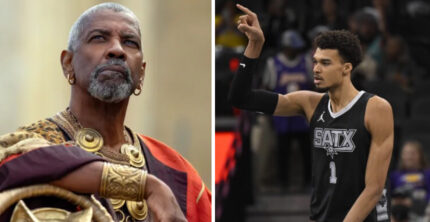Growing up I wanted a pair the Air Jordan VII’s because I watched MJ cook the Orlando Magic for 64 points. I wanted a pair of the Reebok Answers because I watched countless defenders fall victim to Allen Iverson crossovers. Before the Celtics' Dee Brown performed one of the best dunks of Slam Dunk Contest history, he “pumped up” and that was all I needed to march down to the Fulton Street mall and purchase those Omni Pumps.
It seems that all it takes to motivate today’s consumer, though, is hype. This was front and center this past Saturday as the Air Yeezy II was released to the masses. Rap star Kanye West was Nike’s first non-athlete to receive his own signature shoe back in 2009 and the hype hasn't stopped.
I’m still trying to figure out the lure of the Yeezy collection. Maybe if it were positioned to help you create beats or rap better I’d buy into it. But, with no performance cues or technology to make you run faster, increase your vertical or hit the game winner with a defender in your face, shoes like the Yeezy IIs are built on the platform of limited supply…and hype.
It’s wrong to blame the companies. If any of us were able to yield the sales these releases get, we would create releases just like this – as often possible. I do have a problem, though, when frenzy is strategically calculated due to limited supply, manipulating thousands of potential consumers to amass in front of retail doors that have just a fraction of the inventory.
These conditions have led to armed robbery, aggravated assault and even stabbings and shootings. Word? It’s just leather and rubber people!
The game is now inhabited by self-proclaimed resellers that have no supply, self-titled “sneaker kings” with a couple hundred sneaker released within the last two to three years and – my favorite – the celebrity that claims footwear supremacy based on their inclusion on an outdated seeding list.
The sneaker game used to be fun. There was the thrill of the hunt, owners of the mom and pop stores knew your name and the kicks you rocked told your story. Today it’s replaced by destructive behaviors purveyed by people that don’t respect this culture and follow each other to the slaughterhouse of fresh, like sheep on a farm.
Fresh is fresh. No matter what brand, it’s fresh to you and that can’t be disputed. Buying habits should be predicated by your definition of fresh, not by some blog created by a kid that doesn’t know Stan Smith from Stan Lee.



